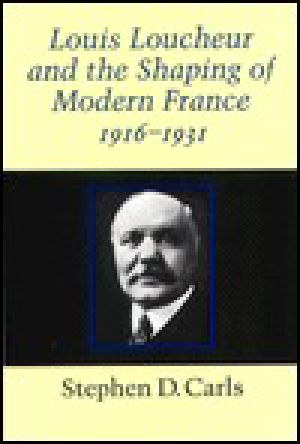Louis Loucheur and the Shaping of Modern France, 1916-1931

- Authors
- Carls, Stephen Douglas
- Publisher
- Louisiana State University Press
- ISBN
- 9780807117873
- Date
- 1993-06-01T00:00:00+00:00
- Size
- 1.35 MB
- Lang
- en
The focus of this assiduously researched study by Stephen D. Carls is Louis Loucheur, an early French technocrat and a Prominent leader among the country's economic modernizers in the crucial years during and after the First World War. A Prewar industrialist and wartime munitions manufacturer, Loucheur was invited to join the French government in late 1916 to accelerate munitions production. He brought much-needed expertise to a nation that was largely unprepared for a technological war and unfamiliar with the techniques of modern economic organization. By the autumn of 1917, as the new minister of armaments, he had become one of the most powerful men in France, guiding not only the ministry but French industry through an extremely difficult period of the conflict. In 1919, Loucheur, then minister of industrial reconstruction, was Premier Georges Clemenceau's chief economic adviser. In the face of strong opposition, he was responsible for a number of initiatives toward economic renovation. He continued his efforts at modernization in the 1920s as a member of the Chamber of Deputies and in frequent government assignments. During those years he had considerable influence on the reconstruction of northeastern France, on public finance, and on a variety of other economy-related matters. His domestic activities extended to social policy, and as labor minister in the late 1920s he profoundly affected French housing policy and oversaw preparations for the implementation of a major social-insurance law. Loucheur was a central figure in France's quest for a lasting peace with Germany. At the Paris Peace Conference, he maintained a moderate position regarding German reparations, and he remainedprominent in negotiations on the question into the early 1920s. He also sought a European economic union and was pivotal in organizing the World Economic Conference of 1927 in the hope of achieving that goal. Carl's account, based on extensive archival research in France, the Unit